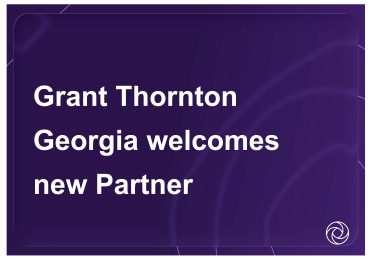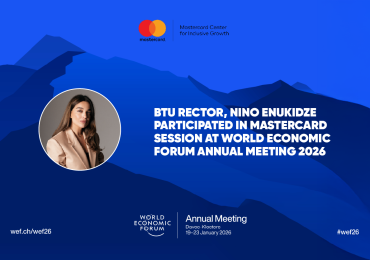Why Do Some Companies Thrive While Others Survive
A little while ago, I watched two CEOs describe their “successful” year. The first spoke for twenty minutes about crises overcome, fires extinguished, and heroic late-night saves. The second mentioned none of that. Instead, he talked about systems that prevented problems, processes that scaled effortlessly, and a team that operated seamlessly without him.
Guess which company increased its revenue?
Here is the uncomfortable reality: We have confused busyness with business success. We celebrate the manager who works until midnight solving urgent problems while ignoring the one who built systems that prevent those problems from occurring.
After studying hundreds of companies in the region, I have found a disturbing pattern: only about 30% are growing. The rest? They are just aging.
Moreover, I have also discovered something that challenges conventional wisdom about business success. The difference between companies that thrive and those that merely survive is not talent, capital, or even market timing. It is anatomy.
Think of your business as a living organism. Like any healthy creature, it needs four vital systems working in harmony:
- The Skeleton: Strategy as Structure. Your strategy is not a 50-page document gathering dust. It’s the framework that determines what you will NOT do. The most successful companies I have observed share one trait: they are Masters of Strategic rejection. They often pass up good opportunities to focus on great ones. This skeleton provides the structural integrity that prevents the organization from collapsing under the weight of every “amazing opportunity” that comes along.
- The Circulatory System: Processes as Reliability Engine. This is where most companies fail spectacularly. They rely on heroic individuals instead of boring, predictable systems. The circulatory system carries strategy and culture to every corner of the organization, ensuring consistent results regardless of who is in charge on any given Tuesday. Companies with strong processes can scale. Companies without them cannot.
- The Brain: Data as a Navigation System. In today’s market, guesswork is expensive. The brain of your business is its ability to learn, adapt, and make informed decisions based on data rather than Companies that treat data as their navigation system adapt before they are forced to – those who do not often find themselves adjusting to bankruptcy proceedings.
- The Heart: Culture as Energy Source. Without a powerful heart pumping energy through the organization, even the strongest skeleton is lifeless. This is not about ping- pong tables or motivational posters. It is about creating an environment where every team member understands not just what to do, but why it matters. When culture is strong, execution becomes inevitable.
Thus, here is a truth that will make many leaders uncomfortable: some of you are addicted to chaos.
A crisis makes you feel important. Being “too busy for strategy” sounds impressive at dinner parties. Solving urgent problems feels like progress. Having war stories makes you interesting.
But what happens when everything just… works? I have seen this psychological trap destroy promising companies. Leaders become so accustomed to firefighting that they unconsciously create fires to fight. They mistake motion for progress, urgency for importance, and exhaustion for achievement.
Meanwhile, their systematically oriented competitors are building predictable growth engines that do not require heroic effort to operate. Building systems is not glamorous. Documenting processes is not exciting. Saying no to opportunities is not celebrated in business magazines.
But you know what is glamorous? Sustainable growth. You know what is exciting? Predictable results. You know what deserves celebration? Creating something that works without you.
The question is not whether you need better systems. The question is whether you’ll build them before your competition does.
Want to know which category you are in? Ask yourself:
- Can your business operate for two weeks without your constant input? If the answer is no, you have built a job, not a business.
- How many of today’s problems existed six months ago? If it’s more than a few, you are managing symptoms, not causes.
- When did you last reject a profitable opportunity because it did not align with your strategy? If you cannot remember, you do not have a strategy – you have wishful thinking.
International companies with boring systems and patient capital are studying our markets. They do not celebrate overtime. They do not need heroes. They just execute, systematically and relentlessly.
While we exhaust ourselves with daily firefights, they are building fireproof foundations. The gap between systematic companies and chaotic ones is not narrowing – it’s accelerating. In medium term, the systematic minority will own entire sectors while the heroic majority will still be solving the same problems, just with fewer resources and stronger competition.
Therefore, the most radical thing a leader can do is not work harder, pivot faster, or innovate more. It is becoming unnecessary. This does not mean becoming irrelevant. It means building an organization so robust and systematically sound that it can thrive without your constant intervention. It means creating something bigger than yourself.
The anatomy of lasting businesses is not built on the backs of exhausted heroes. It’s constructed from boring, predictable, scalable systems that turn good strategy into inevitable results.
Your competitors are reading articles like this, too. Some will dismiss it as academic theory. Others will recognize it as a competitive advantage. The question is not whether business anatomy matters. The question is whether you will develop yours before someone else develops theirs better. Because in the end, the difference between thriving and surviving is not how well you fight fires. It is how well you prevent them from starting.
Forbes Opinion is a non-editorial category created by individuals with diverse interests and ideas. The texts published within this category represent the views of the authors and may not reflect the position of Forbes Georgia’s editorial team.
George Simongulashvili is the founder of GEC — Business Growth Services, helping companies achieve strategic clarity and build sustainable growth systems.










